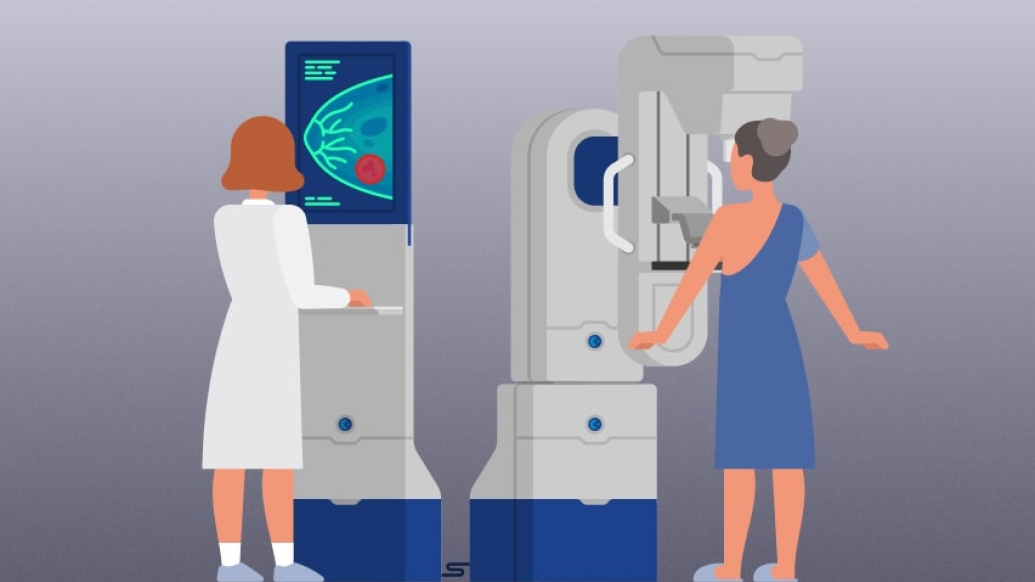An innovative, 15-year study reveals low rates of breast cancer recurrence in patients with reconstructed breast tissue, chest walls or lymph nodes.
8:00 AM
Author |

Nearly everyone knows someone who has been affected by breast cancer — the most prevalent form of cancer for women in the United States. In 2018 alone, an estimated 266,120 cases of invasive breast cancer and 63,960 cases of noninvasive (in situ) breast cancer will be diagnosed.
LISTEN UP: Add the new Michigan Medicine News Break to your Alexa-enabled device, or subscribe to our daily audio updates on iTunes, Google Play and Stitcher.
A recent study estimated that 35 percent of U.S. women with a diagnosis of early stage breast cancer opt for a mastectomy, with many deciding to undergo breast reconstruction.
One popular type of breast reconstructive surgery is autologous myocutaneous flap reconstruction, in which surgeons transpose a flap of the patient's own tissue from a different site, such as her abdomen, to reconstruct her breast or breasts.
A small percentage of women who undergo this type of reconstructive surgery develop a recurrence of breast cancer. Michigan Medicine researchers wanted to better understand this subset of patients.
The road to discovery
The University of Michigan research team retrospectively examined 485 women with autologous breast reconstructions (after mastectomies due to breast cancer) who underwent screening mammography over 15 years. The team's findings were recently published in Radiology.
"We wanted to learn whether or not screening mammography was helpful to these patients in the era of rapidly improving multidisciplinary breast cancer treatment," says Mitra Noroozian, M.D., director of U-M's Breast Imaging Fellowship Program and the study's principal investigator and lead author.
SEE ALSO: Breast Cancer Screening 101: Guidelines, Tools and Facts to Be 'Breast Self-Aware'
The use of early screening in detecting an early breast cancer recurrence that is asymptomatic (and cannot yet be felt during a clinical breast exam) is somewhat controversial, so there had been limited data on its effectiveness.
Clinical surveillance and mammography
The U-M research findings suggest that in addition to long-term clinical surveillance, breast cancer patients who undergo mastectomies and autologous tissue reconstruction surgeries may benefit from adjunct mammography screening of their flaps.
"Our study determined that screening mammography may potentially detect smaller, clinically occult breast cancer recurrences without generating too many false positive biopsies or the need for additional or more frequent imaging. Early detection of a recurrence may decrease patient morbidity," Noroozian says.
Noroozian and her team also discovered that women who undergo prophylactic mastectomies, or the removal of one or both breasts without a cancer diagnosis to reduce breast cancer risk, do not benefit from adjunct screening mammography.
"We hope that this study provides some data to clinicians who are taking care of breast cancer patients treated with mastectomy and autologous reconstruction surgery," Noroozian says. "Hopefully, this data can help them optimize surveillance strategies for these women."
MORE FROM MICHIGAN: Sign up for our weekly newsletter
The study reaffirmed there was a low frequency (2.7 percent) of breast cancer recurrence in reconstructed breast tissue, chest walls or lymph nodes. Noroozian and her team also reported that the estimated proportions of women who remain free of local-regional breast cancer recurrence at five, 10 and 16 years after surgery are 97.9 percent, 96.3 percent and 93.5 percent, respectively. Recurrences were identified anywhere between 0.8 and 16.2 years from surgery.
A little more than half (seven of 13, or 54 percent) of the women diagnosed with recurrent cancer were asymptomatic, and five of these clinically occult cancers were depicted by screening mammograms. Additionally, the recurrent tumors in the women who were screened via mammography were significantly smaller than those of women who did not get screened.
Surprisingly, the cancer detection rate via screening mammography for women who had their breast tissue removed was comparable to the rate reported for a single breast of an age-matched group of women who have their native breast tissue.
To read the study in Radiology, click here.

Explore a variety of healthcare news & stories by visiting the Health Lab home page for more articles.

Department of Communication at Michigan Medicine
Want top health & research news weekly? Sign up for Health Lab’s newsletters today!





